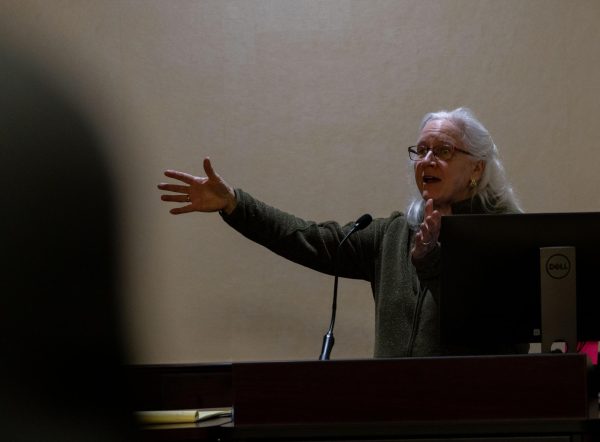Hearings may be required
March 16, 2004
Kentucky students aren’t the only ones worried about tuition increases.
Some state legislators are also concerned.
The Council on Post-Secondary Education would be required to develop a tuition-setting process for colleges and universities if a section of the House’s budget bill is passed.
But Western and CPE officials say this will not have a significant impact on most universities.
The House passed, 64-36, a revision to Gov. Ernie Fletcher’s budget on March 9. The budget is currently being reviewed by the Senate.
The CPE would require the board of trustees at each college and university to hold an annual public hearing on campus to review tuition rate proposals, if the section is passed.
The CPE would also have to report to the Strategic Committee on Post-Secondary Education annually to prove they are carrying out oversight responsibilities.
“Members were concerned about the increase in tuition, and we wanted to make sure people had the opportunity to express themselves,” said Rep. Harry Moberly, D-Richmond.
Moberly said he does not think there will be a problem getting that portion of the budget bill passed.
President Gary Ransdell said Western’s Board of Regents already met in open meetings to approve tuition proposals.
The House bill section will have little impact on Western, he said.
“I don’t think the CPE would do anything in addition to the public process we already have in place,” Ransdell said.
Western’s tuition will most likely be increased by 10 percent for the next academic year, he said. A similar increase was approved by the Board of Regents in October for the current semester.
The CPE currently monitors tuition at colleges and universities, but allows them to set tuition themselves, said Sandra Woodley, vice president of finance at CPE.
Robbin Taylor, assistant to the president for governmental relations, said she was not alarmed by the section in the House budget bill concerning tuition-setting.
Taylor said Western’s goal is to serve students and take care of priorities. But some legislators are concerned about rates getting out of control.
Legislators are beginning to hear more concerns about tuition increases from the public, she said.
“If they limit state funding and limit our ability to set tuition, they cripple us,” she said.
The CPE might soon become more actively involved in tuition setting, Woodley said. But they will likely not begin setting rates themselves, although they have the authority to do so.
The CPE passed tuition setting responsibilities to colleges and universities in 2001, Woodley said.
University administrators need flexibility in setting tuition, partly because some are lacking state funding and experiencing enrollment growth, she said.
Taylor agreed.
“They realize they can’t provide full funding, and they don’t want us to fund on the backs of students,” she said. “And we’re committed to not doing that.”
Western has faced three budget cuts in the past three years, Taylor said.
The CPE will study the affordability of attending college next year, Woodley said.
Kentucky’s tuition rates are still low compared to many other states’, she said.
If the section of the budget bill is passed, the CPE would also be required to review tuition programs for out-of-state students.
Taylor said legislators want to be sure students from other states who attend Kentucky schools aren’t benefitting more than Kentucky students who attend other state schools.
Reach Shawntaye Hopkins at [email protected]

























